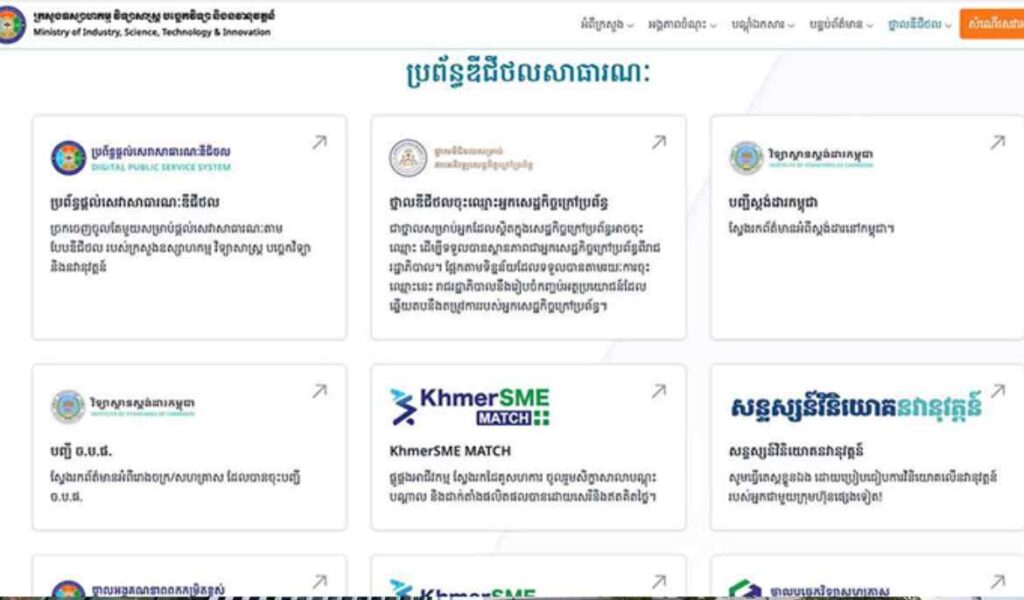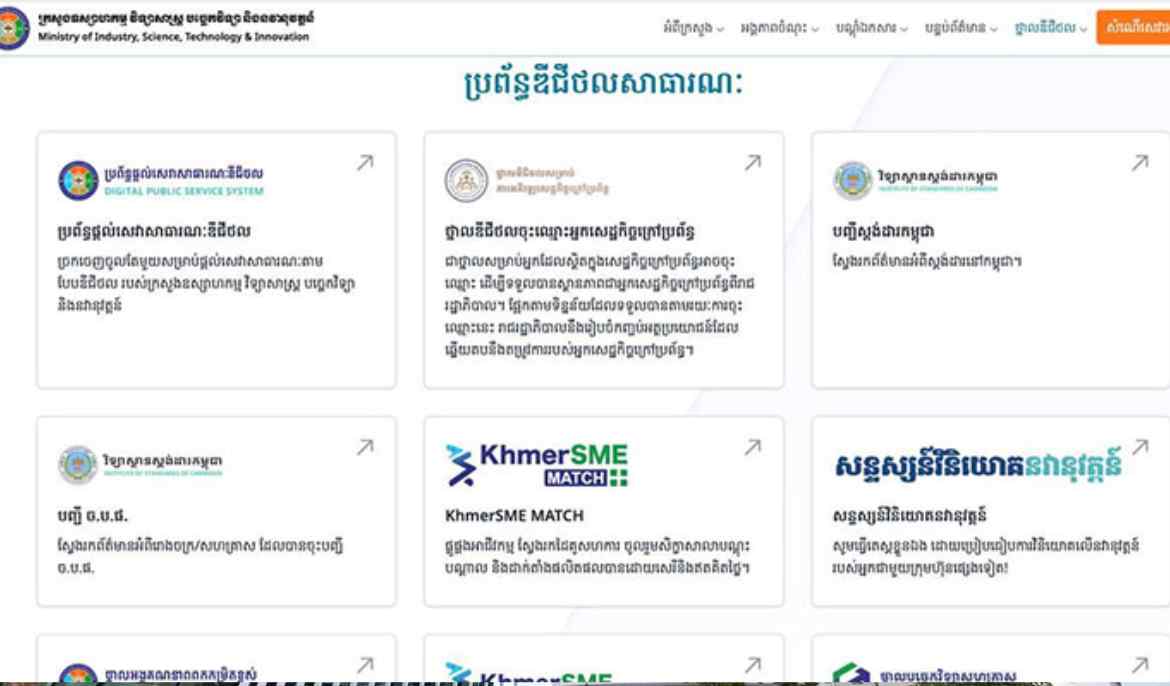The Ministry of Industry, Science, Technology, and Innovation has launched seven additional digital public services to enhance the convenience, efficiency, and transparency of public service delivery.
This move is part of the ministry’s ongoing efforts to modernise its operations and streamline services for citizens and businesses.
The newly introduced digital services include four related to the registration of automotive products and accessories, two for registering metrology instruments, and one for registering conformity assessment bodies. These services complement the initial phase of the ministry’s digital transformation, which began in 2024, offering digital solutions for small and medium enterprise (SME) creation, operational licensing (new/renewal), and factory establishment.
Hem Vandy, the minister, emphasised the significance of these advancements, stating, “The expansion of digital public services marks another milestone in our mission to deliver faster, more efficient, and user-friendly services. The ministry is committed to further expanding the digital system by continuously incorporating additional services to enhance transparency, accountability, and ease of use for all stakeholders.”
With the inclusion of these new services, the ministry has now digitised 15 essential public services across key departments, including the Directorate General of Industry, the Directorate General of SMEs and Handicrafts, the Cambodian Institute of Standards, the National Metrology Centre, and the Directorate General of Accreditation.
Additionally, the ministry has introduced a feature on its website that allows the public to search for information on product registration (CBP) and Cambodian standards (CS), further improving accessibility to vital resources.
This digital transformation aligns with the Cambodian government’s strategic vision of leveraging technology to strengthen governance and drive economic growth. By simplifying procedures, reducing in-person interactions, and improving payment systems, the initiative aims to promote formalisation and efficiency while reducing bureaucratic obstacles.



